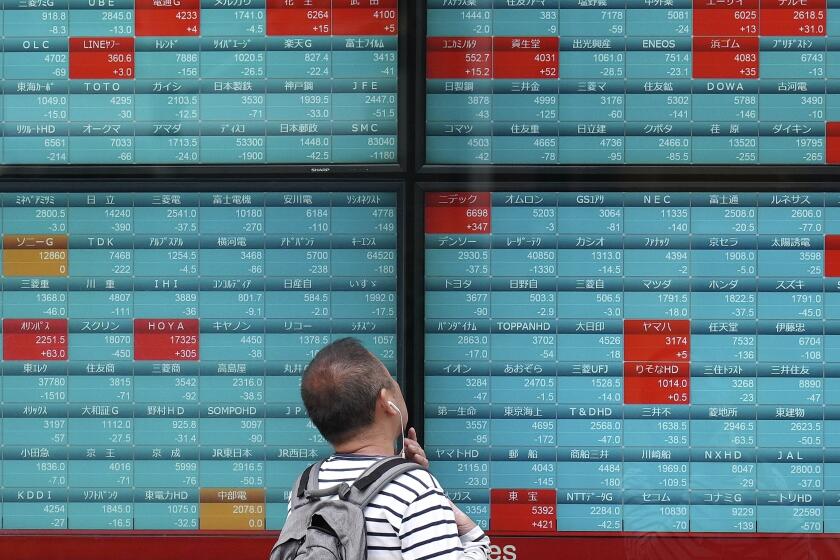AT&T; Reports Profits Up 2%, Cites Long-Distance Service
AT&T; said today its profit rose 2% in the third quarter, reflecting strength in the company’s long-distance service and increased sales of products overseas.
For the three months ended Sept. 30, AT&T; said it earned $712 million, or 65 cents a share, compared to $699 million, or 65 cents a share, in the same quarter last year. Per-share earnings remained stable due to a higher number of outstanding shares in the most-recent quarter.
Revenue advanced 5% to $9.36 billion from $8.9 billion in the year-ago quarter. Operating income rose 11% to $1.25 billion.
American Telephone & Telegraph Chairman Robert E. Allen called the results by the nation’s largest long-distance phone company “solid in the face of a softening economy.”
The company said in a statement that higher-than-expected start-up costs for the AT&T; Universal Card, a combination credit and calling card introduced in March, prevented earnings from showing even stronger gains. Costs for the card were higher than expected because of greater demand than the company anticipated.
In addition, AT&T; said, its earnings were hurt by higher income taxes resulting primarily from reduced tax credits.
Product sales, including network telecommunications products, computers, microelectronic components and consumer products, jumped almost 13% during the quarter to $3.08 billion.
Service revenues, which include long-distance service, installation and maintenance of equipment, and finance services, rose 3% to $5.72 billion. Long-distance revenue itself grew 1.5% as calling volume advanced 7%.
Charles Nichols, an analyst at Prudential-Bache Securities Inc., said the 7% increase in calling volume is good news and “shows that AT&T; has become more effective in stemming market-share erosion” to MCI Communications Corp. and U.S. Sprint.
Nichols said he is pleased with the company’s earnings growth and agreed that it is doing well in the light of the economic decline. He called the continued earnings drag from the Universal card “a short-term negative, long-term positive” since the card holds the potential of increasing earnings in the future.






